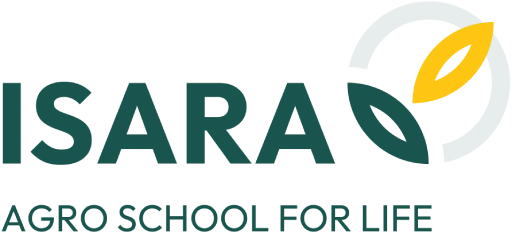In line with research led on soil conservation and the design of organic or low-input innovative and diversified crop systems, Isara has been working since 2016 on the topic of ‘perennial grains’.
These perennial grains are being studied by the Agroecology and Environment unit as an agroecological practice which could improve the sustainability of arable crops or multiculture-animal husbandry systems. Capable of regrowing and going through their grain cycle over several consecutive years, the value of perennial grains lies in a pluriannual ground cover, significant root-system development and a combined or sequential production of grain and fodder.
In connection with the variety-selection work being done on these grains, Isara teams are looking at their potentials in terms of production (yield and grain-to-fodder value), reducing input dependency for soil fertility management or pest control, protecting vulnerable areas (nitrates contamination, erosion), or response to constraints linked to climate change (resistance to dry conditions, increasing the value of ressources available in the autumn, etc.) This agronomic evaluation has a double purpose: characterising the services rendered by the crops, and determining the management modalities best-suited to their integration in crop rotation.
Ongoing projects linked to this topic:
- CERPET: Perennial Grains for an agro-ecological transition of crop systems » (2019-202Partners : ARVALIS-Institut du végétal, Gembloux AgroBio-Tech (Belgium), INRAE UMR GDEC, Secobra Recherches
- NAPERDIV : « Nature-based perennial grain cropping as a model to safeguard functional biodiversity towards future-proof agriculture » (2020-2023)
Keywords : Kernza® / soil microbiome / soil fauna / crop and system modelling / ecosystem services / soil conservation / climate change mitigation and adaptation / agroecology / food security / bioeconomy
Partners : University of Hohenheim (Germany), Sapientia Hungarian University of Transylvania (Romania), Gembloux Agro-Bio Tech (Belgium), Graz University of Technology (Austria), Nicolaus Copernicus University (Poland), Swedish University of Agricultural Sciences (Sweden)
Recent Publications
- Duchene, O., Celette, F., Barreiro, A., Dimitrova Mårtensson, L.-M., Freschet, G.T., David, C., 2020. Introducing perennial grain in grain crops rotation: the role of rooting pattern in soil quality mManagement. Agronomy 10, 1254. https://doi.org/10.3390/agronomy10091254
- Duchene, O., Celette, F., Ryan, M.R., DeHaan, L.R., Crews, T.E., David, C., 2019. Integrating multipurpose perennial grains crops in Western European farming systems. Agric. Ecosyst. Environ. 284, 106591. https://doi.org/10.1016/j.agee.2019.106591
- Duchene, O., Dumont, B., Cattani, D., Fagnant, L., Schlautman, B., DeHaan, L.R., Barriball, S., Jungers, J.M., Picasso Risso, V., David, C., Celette, F., under press. Process-based analysis of Thinopyrum intermedium phenological development across various environments highlights the importance of dual induction for reproductive growth and agronomic performance. Agric. For. Meteorol.
- Wayman, S., Debray, V., Parry, S., David, C., Ryan, M.R., 2019. Perspectives on Perennial Grain Crop Production among Organic and Conventional Farmers in France and the United States. Agriculture 9, 244. https://doi.org/10.3390/agriculture9110244


